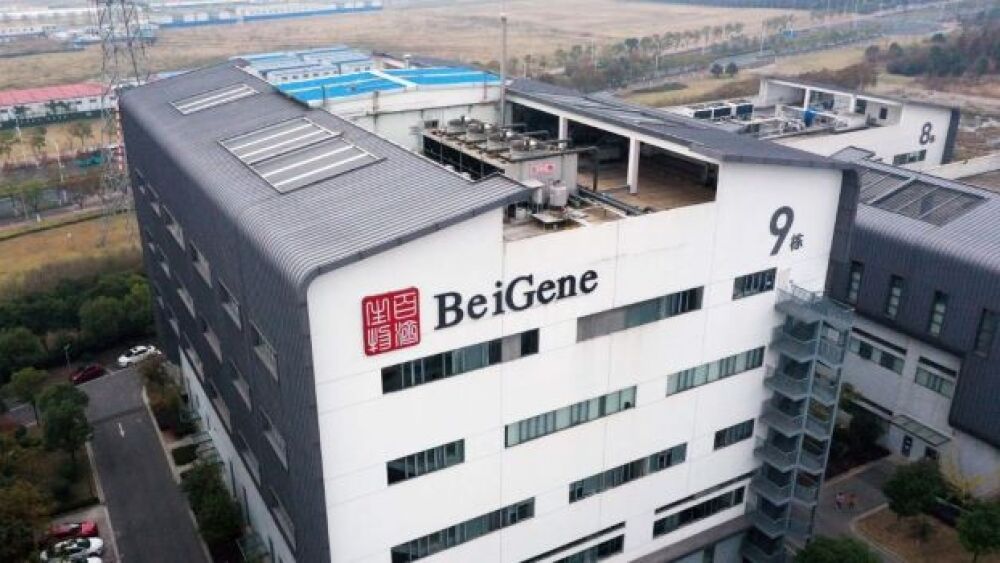Shares of BeiGene have fallen 16% in China in part due to concerns over potential U.S. sanctions against Chinese biotech companies.
Ji Haixin/VCG via Getty Images
Despite making an impressive $3.5 billion debut on the Shanghai STAR Market earlier this week and blazing a trail to become the first company simultaneously listed on stock exchanges in Shanghai, Hong Kong and New York, shares of BeiGene have hit the skids and fallen 16% in China.
According to Reuters, the stock slide is, in part, due to concerns about the company’s $29 billion valuation amidst ongoing concerns over potential U.S. sanctions against Chinese biotech companies. Not only did its shares on the STAR market fall 16%, shares of BeiGene in Hong Kong fell nearly 8%.
The decline comes not only at a time that BeiGene’s shares in the U.S. have fallen over the past month, but also at a time the U.S. Department of Commerce is eyeing a sort of sanction against multiple China-based companies. In its report, Reuters said the Department of Commerce is setting its sights on more than two dozen Chinese companies, including some biotech firms, and placing them on an “entity list,” which would restrict some imports into the United States.
The potential “entity list” is politically motivated. According to a separate Reuters report, the U.S. government is expressing concern over some companies’ relationship with the Chinese military. The report said the blacklist would prohibit U.S. investors from backing these companies.
As BioSpace previously reported, BeiGene’s Nasdaq shares are potentially at risk under a newly proposed law that could be finalized before the end of the year. The new law will force the delisting of companies on the stock exchange that have auditors that cannot be overseen by U.S. watchdogs for three consecutive years. BeiGene is among approximately 270 companies that could be affected by this law.
BeiGene said it will use the proceeds raised from the listing on Shanghai STAR to finance R&D efforts, as well as construction of its research and development centers and a manufacturing plant in China. Funds from the raise will also be used to expand its sales and marketing force in China.
Since its launch, BeiGene has built a significant presence in the United States. In August, the company announced plans to build a new 42-acre facility in New Jersey that is expected to employ hundreds of people. The new site will include commercial-stage biologic pharmaceutical manufacturing, clinical R&D, and the BeiGene Center for Pharmacovigilance Innovation.
In September, BeiGene snagged two approvals from the U.S. Food and Drug Administration (FDA) for Brukinsa (zanubrutinib), a Bruton’s tyrosine kinase (BTK) inhibitor. First, the drug won approval as a treatment for adults with Waldenstrom’s macroglobulinemia, a form of non-Hodgkin lymphoma. And then, two weeks later, it won a second approval as a treatment for adult patients with relapsed or refractory (R/R) marginal zone lymphoma (MZL). In addition to those two indications, Brukinsa was previously approved by the FDA as a treatment for mantle cell lymphoma.





